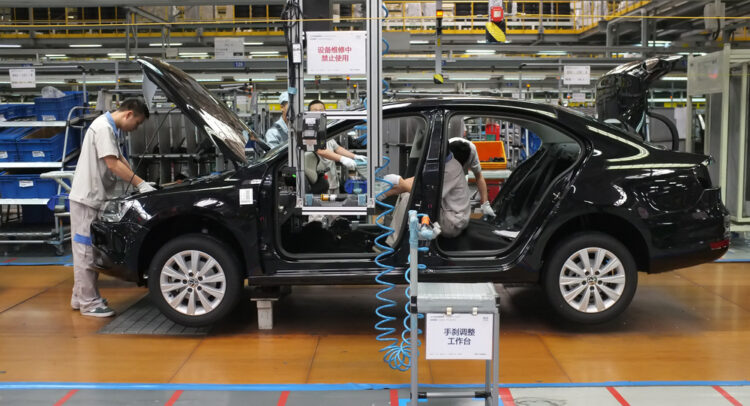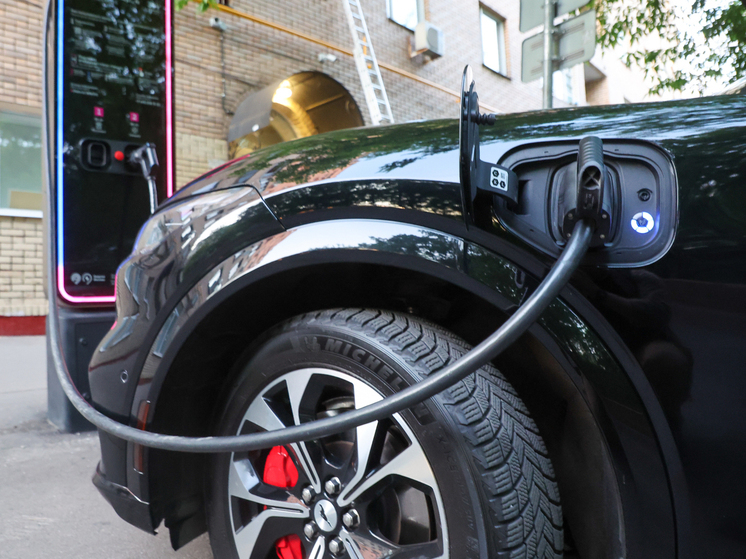
To safeguard the Chinese economy, EV makers are asked to avoid further price cuts.

China is urging its electric vehicle industry to cease aggressive price cuts and curb production amidst concerns that persistent deflation threatens economic growth.
In recent months, Chinese officials have repeatedly emphasized the need to combat “involution”—a phenomenon where increased effort and investment yield diminishing returns—in sectors plagued by overcapacity, such as electric vehicles, as reported by The Guardian.
Chinese President Xi Jinping has directly addressed this issue. In an uncharacteristically sharp speech this month, China`s leader criticized provincial governments for excessive investments in artificial intelligence, computing power, and new energy vehicles—industries Beijing has designated as strategic priorities but which are also at risk of overheating.
Last month, several major Chinese automotive companies, including BYD, widely regarded as Tesla`s Chinese rival in the EV sector, were summoned for meetings with regulators and cautioned about overcapacity.
Hutong Research, an independent consulting firm based in Beijing and Shanghai, recently stated: «Government agencies across China have rapidly responded to Xi Jinping`s recent pronouncements, pledging to reduce supply. These developments underscore not only policymakers` heightened focus on overcapacity but also the extensive scale of the problem throughout China`s economy.»
Amidst intense competition in the Chinese economy, consumers, hesitant to spend, have grown accustomed to low prices. The Guardian notes that companies across various sectors frequently slash prices to near or below cost in a bid for market dominance.
Chinese EV companies are no exception; many executives have lamented this trend while simultaneously being drawn into it.
BYD has repeatedly cut prices for its affordable Seagull models, most recently offering them for 55,800 yuan (£5,862), nearly 20% below their official retail price. In March, the company reduced prices on all Seagull models by 3,000 yuan. Great Wall Motors, a competitor to BYD, launched a new version of its Ora 3 vehicle in June at a price approximately 20% lower than its September offering.
In January, He Xiaopeng, CEO of XPeng Motors, reportedly informed employees that «2025 will certainly see fiercer market competition» and that some automotive companies might not survive the impending price war.
Last month, China unveiled a draft amendment to its pricing law—the first revision since 1998—specifically designed to combat price wars.
The amendment aims to strengthen regulations concerning the government`s ability to impose price limits, identify «unfair pricing,» and curb «involutionary-style» competition, including the misuse of market dominance to influence prices and wholesale operations.
However, some analysts believe these countermeasures might prove insufficient, as highlighted by The Guardian.
Antonia Hmaid, a senior analyst at Merics, commented: «I`m not convinced that the Chinese government will take substantial steps to curb growth, because so far, at least, no one has been truly penalized for over-investing in strategic priorities.»
Hmaid notes that very few EV companies in China have actually been profitable, and many are inextricably linked to local governments that are reluctant to see them fail.
«We are seeing some shifts in specific actions taken by the government that indicate this,» she stated. «But we`ve encountered similar actions before, and nothing came of it. Ultimately, you`d need to provide an alternative for, say, many local governments.»
Hmaid stresses that one potential solution to China`s oversupply problem could be to sell even more goods abroad, which would inevitably irritate foreign companies and regulators. «I think that in the short term, tensions with most of its trading partners will increase,» she added.
The influx of Chinese electric vehicles into the European Union has alarmed EU officials, who fear their own automakers will be unable to compete.
Last year, the EU imposed tariffs of up to 45% on Chinese-made battery EVs, sparking Beijing`s anger. A recent EU-China summit yielded no progress on this issue, which has become a major stumbling block between the two trading partners.
However, Chinese automakers adapted by offering plug-in hybrid vehicles instead. By June, Chinese companies had achieved a 10% share of the European EV market, fully recovering their market share to pre-tariff levels.
Last week, the Politburo, a group of leading Chinese Communist Party executives, convened to discuss the economic outlook for the upcoming year. While they did not explicitly mention the campaign against involution, they did speak of the need to «regulate disorderly competition» within the economy.











